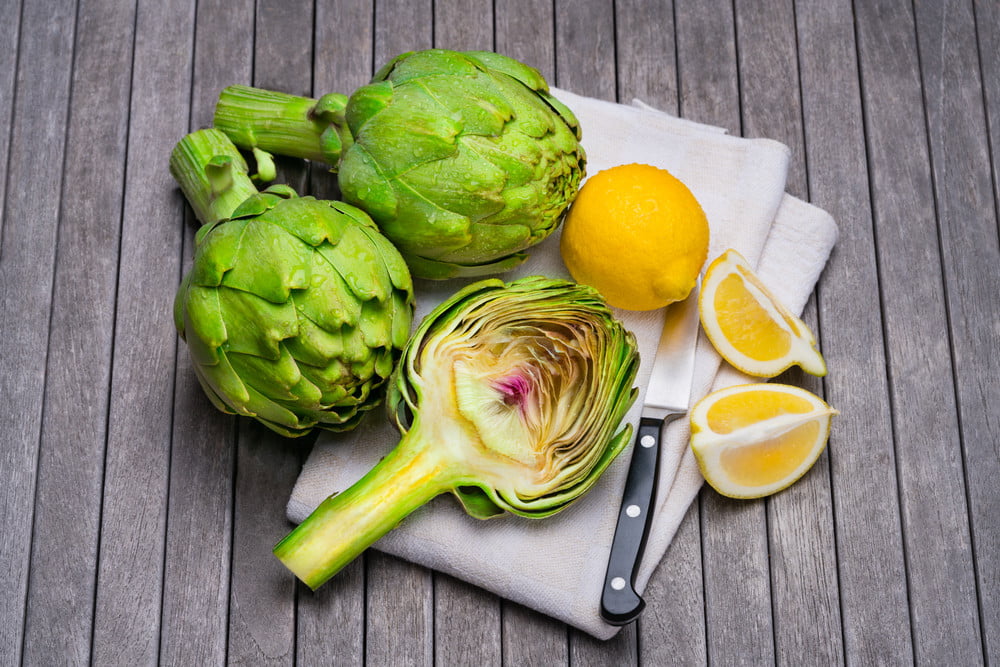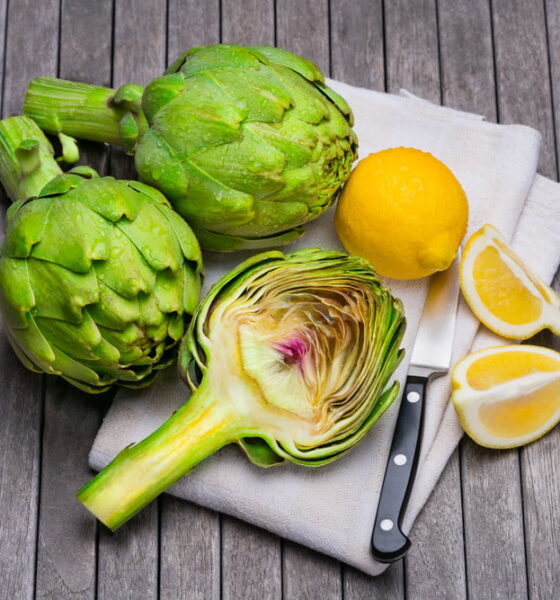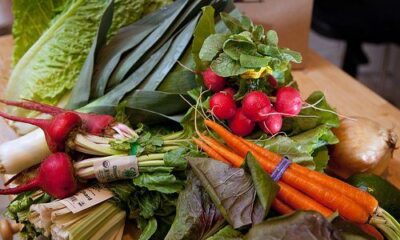

Lifestyle
Sustainable Eating Is More Than Just ‘Going Vegan’
Sustainable eating might sound like some kind of complicated new-age lifestyle change, but it doesn’t have to be. In its simplest form, sustainable eating can be defined as consuming food products that are farmed and processed using techniques that protect both people and the environment. That means ditching foods linked to pesticides, excessive plastic packaging and intensive farming and making more environmentally friendly choices such as buying Fairtrade, organic and/or cooking with locally produced ingredients.
The good news is, if you’re a vegan who follows a fundamentally plant-based diet, you’re probably already eating more sustainably than you think. Adopting a diet based around whole foods such as beans, grains, fruits, and vegetables brings along with it a ton of positive health benefits. This includes everything from speeding up the metabolism to reducing inflammation and fighting heart disease. Even world-class athletes such as NBA star Jahil Okafor and former NFL lineman “The 300lb Vegan” David Carter made the move to plant-based – with both professionals being keen to advocate how their lifestyle change influenced their careers for the good.
According to the Harvard T.H. Chan School of Public Health, eating more plant-based foods is the number one way to go for supporting sustainable eating. Filling your plate with fresh, colourful, earth-grown ingredients over highly processed goods not only ensures you get your RDA of vitamins and other goodness, it also helps to reduce freshwater withdrawals and tackle deforestation — two factors majorly impacting the health of the planet in 2018. Eating meat-free is also a great way to reduce your own personal contribution to climate change. According to New Scientist, a diet centred around vegetarianism can half CO2 emissions from your food. This astonishing data was collected by Peter Scarborough and his team at Oxford University in England through studying the real-life diets of more than 50,000 UK citizens.
Granted, eating vegan might be easier for those living in a city, especially considering the massive growth in veganism in countries such as the US, Australia and the UK over the last decade. For example, there has been a whole new wave of forward thinking and innovative vegan restaurants in London as well as vegan choices of pre-made meals in supermarkets in the last few years. And no matter your current location, many restaurant listing sites and apps such as Deliveroo have a wide variety of diverse eating options. Many of these sites and apps also categorize their listings to suit different dietary choices – making it easy for customers to ensure their mid-week treat is not only tasty but sourced sustainably too.
There’s more to just hitting up your local vegan food joint to eating sustainably. The choices we make as to where we buy our food can also make a huge difference, and you can always take everything one step further. Supporting local organic businesses is also a great way to make sure you’re gathering food that is sourced ethically and grown responsibly.
A farmers market is a great place to start while shopping to eat sustainably. Not only are they full of opportunities to discover awesome new tastes, textures and flavours – they’re the perfect spot to get to know the people behind what will ultimately end up in your stomach. You’ll find out exactly what journey your food has been on, and you may be surprised at what you uncover. Not only that, but you’ll be safe in the knowledge that the big bag of tasty ingredients you purchase have had minimal time from field to plate. This means less time spent hauled up on the road, lowering the carbon footprint of your meal considerably.
It’s also a great idea to either take containers or reusable bags with you on your trips to market in order to transport your newly purchased goods home and cut the habit of routinely throwing plastic wrapping in the trash. If you’re looking to grab food from your favourite vegan take-out, give them a call to find out if their containers are recyclable. If not, try to re-use as many as possible, or take to the net to find a more sustainable eatery in your area. You never know, you might just discover your next culinary obsession.
Sustainable eating is about so much more than what you consume. It’s about taking the whole process of how the food is grown, processed and sold into consideration, whether you’re in the mood for take-out or eating at home.


 Features11 months ago
Features11 months agoEco-Friendly Cryptocurrencies: Sustainable Investment Choices

 Energy11 months ago
Energy11 months agoThe Growing Role of Solar Panels in Ireland’s Energy Future

 Energy10 months ago
Energy10 months agoGrowth of Solar Power in Dublin: A Sustainable Revolution

 Energy10 months ago
Energy10 months agoRenewable Energy Adoption Can Combat Climate Change




























